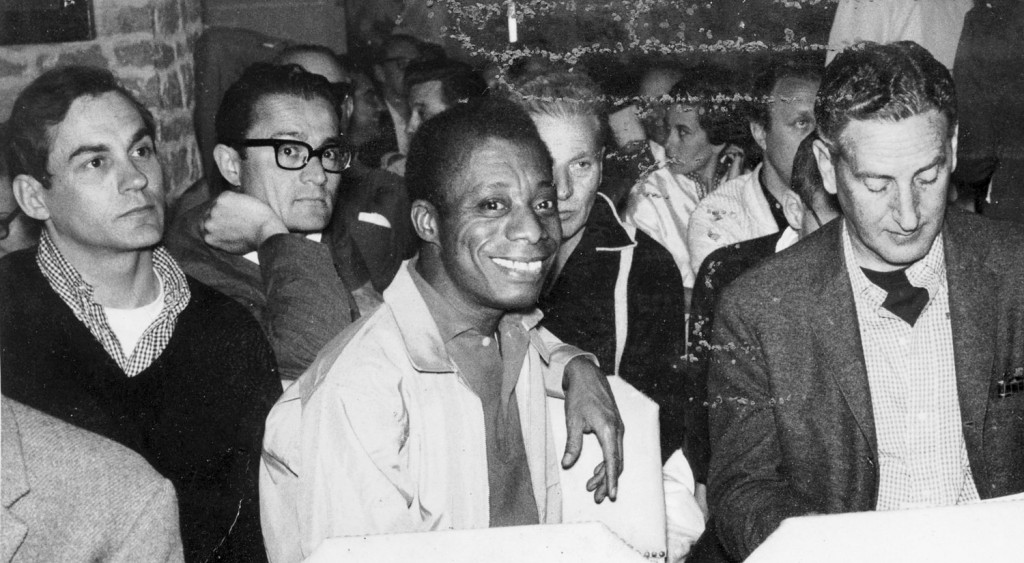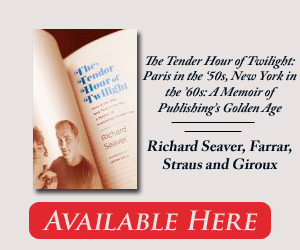
The Tender Hour of Twilight: Paris in the ’50s, New York in the ’60s: A Memoir of Publishing’s Golden Age, By Richard Seaver, Farrar, Straus and Giroux, 457 pp., $35
Richard Seaver’s name might be unfamiliar to the casual reader, but his talent for recognizing vital new voices helped define midcentury American letters. He was a founder of Merlin, a short-lived but influential avant-garde literary magazine in 1950s Paris. Its influence owed much to Seaver’s early support of writers like Samuel Beckett and Eugène Ionesco, the Romanian-French playwright whose works he translated into English. Seaver later became a senior editor at Barney Rosset’s Grove Press during its defining censorship battles, starting with the 1959 Lady Chatterley case. Now we have his account of the era, The Tender Hour of Twilight—a book his wife Jeannette Seaver pulled together after her husband’s death in 2009, from 900 pages he left behind. The result is lively and gratifying, particularly in the absence of a memoir from Rosset, who died in February.
In 1952, Seaver was fresh out of the University of North Carolina and a stint in the Navy, and had literary ambitions but no contacts in the publishing world. Undaunted, he and several other young writers launched Merlin. Despite his uncommonly fine eye as an editor and the many literary notables who held his judgment in high regard, Seaver is an unassuming guide. He offers readers insights about many of these figures, like Irish poet Brendan Behan, who emerges in these pages as unruly and unwelcome from the first time Seaver met him. Behan immediately takes up residence in Seaver’s apartment for several days, using it as a base from which to stalk Samuel Beckett. Seaver’s relationship with fellow Merlin founder Alex Trocchi will be painfully familiar to anyone who has witnessed the travails of addiction. Trocchi was a talented, enterprising young writer when Seaver knew him in Paris. But several years later in New York, when Trocchi was under contract for a novel with Grove Press, Seaver’s dealings with him were dismal, driven by Trocchi’s continuing need for money to buy drugs. Trocchi finally exited the stage dressed in several layers of clothes stolen from George Plimpton’s closet and headed to Canada, where he met Leonard Cohen, in the days when Cohen was better known as a poet and novelist than a songwriter.
We witness Seaver’s fervent pursuit of all Beckett’s published work, at a time when accounting for obscure publications required tenacity and patience rather than a brief series of clicks. He paints the writer as precise and gracious yet somehow still imposing. “I called him Mr. Beckett for many years,” Seaver recalls, and one can hardly blame him. His first encounter with Beckett set a tone that would leave most anyone awestruck. Seaver and his compatriots from Merlin were gathered for dinner when an unexpected knock at the door revealed Beckett, standing in a downpour, wearing a sodden raincoat and hat, and bearing a manuscript copy of Watt, the final jewel eluding Seaver. He said little, declined an invitation to join them for dinner, and disappeared into the night. The Merlin-ites spent the remainder of the night drinking and reading aloud from the novel, thrilled with their new discovery.
The most notable contribution Seaver made to American letters came during his tenure at Grove Press. Rosset, its publisher, was a great contrarian but also an energetic and principled man, more concerned with publishing works that fit Grove’s outlaw ethos than whether a given title would make money. Rosset couldn’t have found a better fit for Grove than Seaver, who was comfortable with risk, an asset for a publisher committed to challenging longstanding censorship statutes. Seaver provides a detailed analysis of the strategies Grove employed in the legal battles over Lady Chatterley, as well as the extent of the costs incurred, both financial and in terms of time and worry. The book is an invaluable account of a period that fundamentally changed the landscape for American writers and publishers. By 1972, when comedian George Carlin trotted out his infamous “Seven Words You Can Never Say on Television,” writers were already free to use them in print—thanks, in part, to the efforts of people like Richard Seaver.


